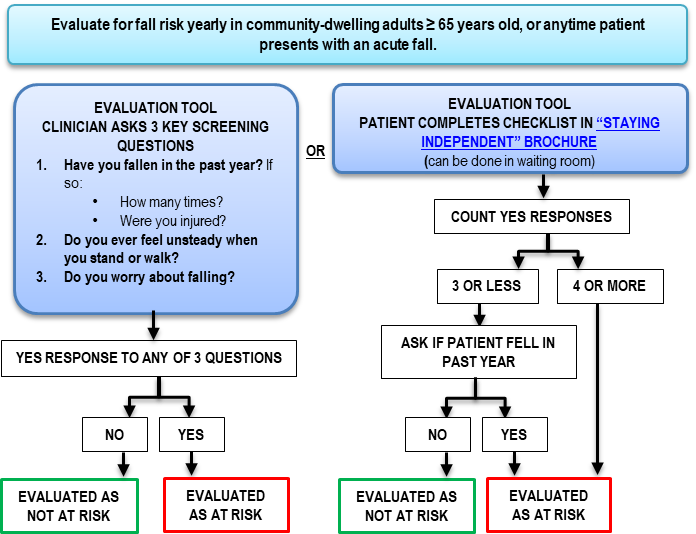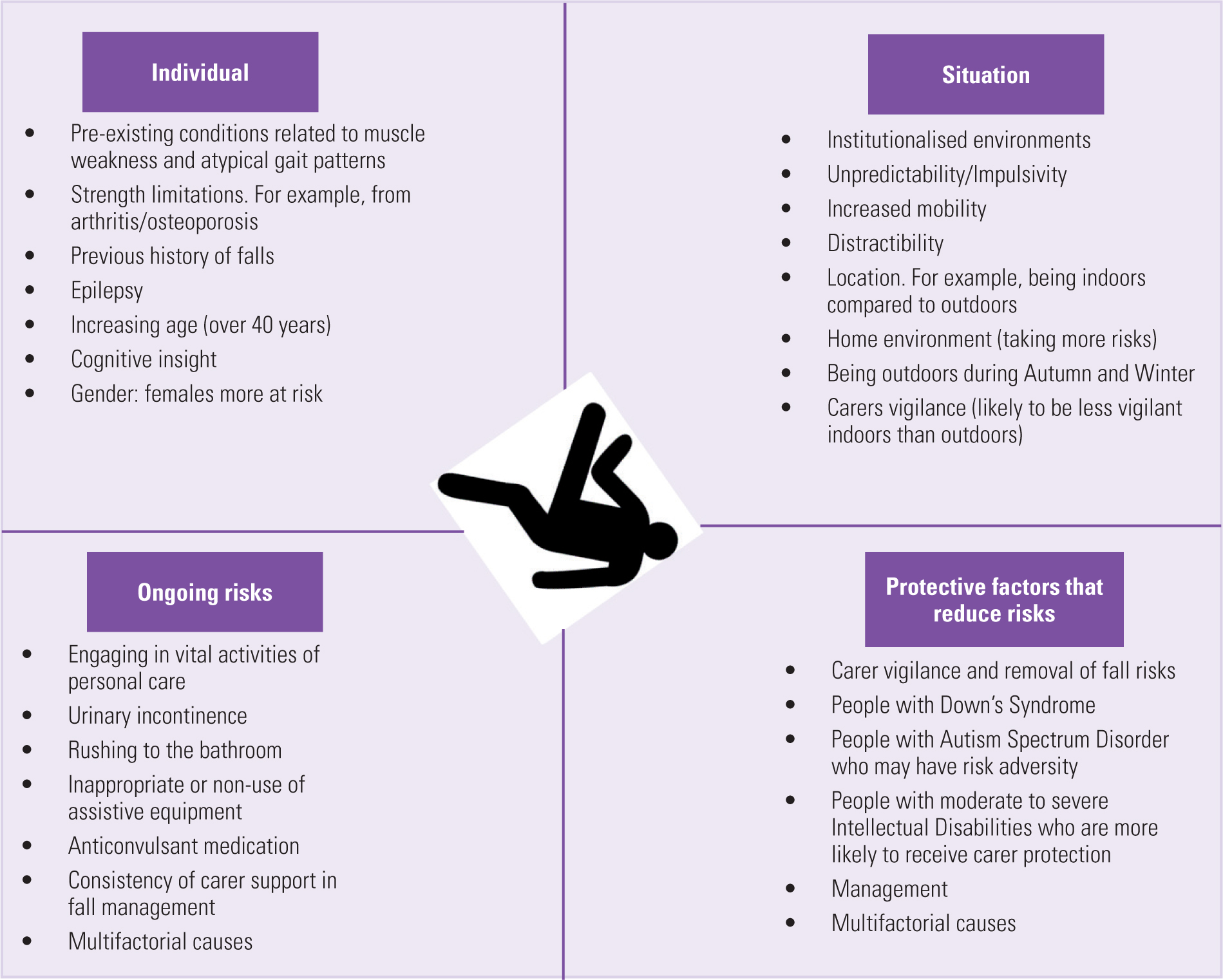The Single Strategy To Use For Dementia Fall Risk
The Single Strategy To Use For Dementia Fall Risk
Blog Article
Some Ideas on Dementia Fall Risk You Need To Know
Table of ContentsDementia Fall Risk for DummiesThe Single Strategy To Use For Dementia Fall RiskGetting The Dementia Fall Risk To WorkThe Ultimate Guide To Dementia Fall RiskThe Greatest Guide To Dementia Fall Risk
The FRAT has three areas: drop danger standing, danger factor checklist, and activity plan. A Fall Danger Condition consists of data about history of recent drops, drugs, psychological and cognitive condition of the person - Dementia Fall Risk.If the patient scores on a danger aspect, the equivalent number of points are counted to the client's fall danger score in the box to the far. If a patient's loss danger score totals 5 or greater, the person goes to high risk for falls. If the person ratings just 4 points or reduced, they are still at some danger of falling, and the registered nurse must use their ideal medical assessment to manage all autumn threat factors as component of a holistic treatment plan.
These standard methods, in general, assist create a secure environment that decreases unexpected falls and marks core precautionary steps for all individuals. Signs are important for individuals at threat for drops.
What Does Dementia Fall Risk Mean?
For instance, wristbands need to consist of the individual's last and very first name, day of birth, and NHS number in the UK. Details need to be printed/written in black versus a white background. Just red shade ought to be used to signal unique individual standing. These suggestions are constant with current advancements in individual recognition (Sevdalis et al., 2009).
Things that are too far might need the patient to connect or ambulate needlessly and can potentially be a hazard or add to drops. Aids stop the individual from heading out of bed with no help. Registered nurses react to fallers' telephone call lights faster than they do to lights started by non-fallers.
Aesthetic problems can significantly cause drops. Maintaining the beds closer to the flooring lowers the threat of falls and severe injury. Positioning the cushion on the flooring dramatically minimizes loss risk in some health care settings.
Dementia Fall Risk Can Be Fun For Everyone
Clients that are high and with weak leg muscles who attempt to rest on the bed from a standing position are most likely to fall onto the bed since it's too low for them to lower themselves securely. If a high person attempts to obtain up from a reduced bed without assistance, the patient is most likely to fall back down onto the bed or miss the bed and fall onto the flooring.
They're created to advertise prompt rescue, not to avoid drops from bed. Audible alarm systems can additionally advise the individual not to rise alone. Using alarms can likewise be an alternative to physical restrictions. Apart from bed alarms, boosted supervision for risky individuals additionally may aid prevent drops.

Patients with a shuffling stride rise loss chances considerably. To decrease fall risk, shoes should be with a little to no heel, thin soles with slip-resistant step, and sustain the ankle joints. Encourage individual to utilize nonskid socks to stop the feet from moving upon standing. However, motivate clients to wear ideal, well-fitting shoesnot nonskid socks for ambulation.
Little Known Facts About Dementia Fall Risk.
Patients, specifically older grownups, have actually decreased visual capacity. Illumination an unknown environment helps enhance exposure if the individual should stand up at evening. In a research study, homes with ample illumination report less drops (Ramulu et al., 2021). Improvement in illumination in your home may lower loss rates in older adults use this link (Dementia Fall Risk). The usage of gait belts by all health and wellness treatment service providers can advertise security when helping individuals with transfers from bed to chair.

Sitters work for guaranteeing a safe, secured, and secure setting. Studies demonstrated extremely low-certainty proof that sitters reduce loss risk in severe treatment medical facilities and only moderate-certainty that choices like video surveillance can lower sitter usage without boosting loss risk, suggesting that sitters are not as beneficial as initially believed (Greely et al., 2020).
The Best Strategy To Use For Dementia Fall Risk

Enhanced physical conditioning lowers the danger for drops and limits injury that is received when loss takes place. Land and water-based workout programs may be likewise useful on balance and stride and therefore reduce the threat for drops. Water exercise may add a favorable advantage on balance and gait for females 65 years and older.
Chair Surge Exercise is an easy sit-to-stand exercise that helps reinforce the muscle mass in the upper legs and butts and enhances mobility and independence. The objective is to do Chair Rise workouts without using hands as the client becomes more powerful. See resources section for a detailed guideline on just how to carry out Chair Surge exercise.
Report this page